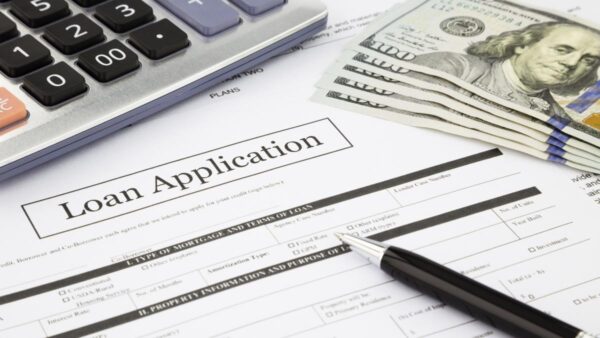Personal loans are one of the most commonly used financial products. These are unsecured loans that can be taken out by individuals from either a bank or other financial company to meet their individual needs. These loans don’t come with any security. To secure loans such as these, borrowers cannot pledge any collateral such as property or gold. If you default on the loan, your lender can not sell what you have. Personal loans have higher interest rates than most other loans because they are riskier. Lenders won’t limit the use of funds from a personal loan, except in instances where there are illegal activities. Personal loans are used for renovations of a house, vacation home, or wedding. For example, Loanpig offers 300 loans.
1. Make Sure To Understand Your Requirements Before Applying For A Loan

You should carefully weigh all costs before you apply for a loan personal. This is something you shouldn’t take lightly as a personal loan lender. This is a major financial commitment because of the monthly payments as well as the interest. For the foreseeable future, this personal loan will continue to be part of your monthly budget. It is important to use it effectively and responsibly. Make sure you take into account all costs before you decide on the amount of your loan.
2. Maintain Good Credit Standing
Personal loans require a credit check. To provide credit information, the above-accredited agencies collect personal information from their members. A credit score of 775-909 is considered to be good. Higher credit scores will improve your chances of getting approved to borrow personal money. You will also be eligible for better loan offers if you have a higher credit score. This can lead to lower interest rates and longer repayment periods.
If you don’t have the greatest credit score, don’t let that discourage you. There is still hope. You still have hope. You also must not default on any EMI payments.
3. You Can View The Eligibility Criteria

The eligibility criteria for a personal loan vary from one lender to the next. Before you apply to borrow money from a bank, make sure that you verify your eligibility. Most lenders require that the borrower is between 18-and 60 years old. This is a crucial criterion because it directly affects your ability to pay back the loan. You can access basic information from many lenders by using the personal Loan Eligibility calculator.
4. Any Additional Costs Should Be Considered
Keep in mind that interest payments and EMI are not included in the loan cost. You may also be charged a processing fee, prepayment fee, late payment fee, and other fees to increase the overall cost. You can use the terms and conditions to help you determine the feasibility of your loan application.
5. It Is Vital To Carefully Review The Repayment Terms

You must evaluate your financial obligations before taking out a loan. This includes monthly expenses, as well as EMIs. Flexible loan repayment terms are important to simplify your finances. Personal loans are flexible with repayment terms of up to sixty months. You can get a personal loan at very attractive rates. Customers have easy access to digital documentation, making loan disbursement quick and easy.
6. Consider Alternatives
There are a number of reasons why you might want to explore your options before applying for a personal loan. For one, personal loans typically come with high-interest rates. If you have a good credit score, you may be able to get a lower rate by taking out a loan from a bank or credit union. But if your credit score is low, you may pay quite a bit in interest.
Another reason to consider alternatives before applying for a personal loan is that personal loans usually need to be repaid in a shorter amount of time than other loans. This means that you may have to make some sacrifices in order to repay the loan. To make your loan payments, you may need to put off other financial goals, such as saving for retirement.
Finally, personal loans are not typically secured by collateral. If you can’t repay the loan, the lender can’t take your house or car (for example). So, there’s a risk of losing your home or car if you can’t repay a personal loan.
Alternatives to personal loans include:
- Taking out a home equity loan or line of credit.
- Borrowing from a friend or family member.
- Using a credit card.
- Each option has its pros and cons, so be sure to weigh all of your options before choosing one.
7. Negotiate a Better Deal

When taking out a personal loan, it’s important that you get the best possible deal; this means negotiating with potential lenders before you even apply. However, if you do not negotiate a better deal before applying for the loan, you could be stuck with pretty high-interest rates.
The benefits of negotiating a better deal before applying for a personal loan are:
- You could get a lower interest rate
- You may be able to get a longer repayment term, which will reduce your monthly payments
- You may be able to get the loan for free or at a reduced interest rate
- Lenders may be more willing to work with you if you have a poor credit history
So, by negotiating a better deal before applying for a personal loan, you may save money on interest, reduce your monthly payments, or get the loan for free.
8. Consider the Worst-Case Scenario
Before you sign, consider the impact of loan default on your credit score and financial situation. A missed payment is all that can affect your credit score. However, a total loan default could cause serious damage to it. It is important to consider your future finances and take action accordingly.
Bottomline
A personal loan can be a great way to consolidate debt or finance a large purchase. However, there are a few things to think about before applying for one. This article outlined what you need to consider before taking out a personal loan.




